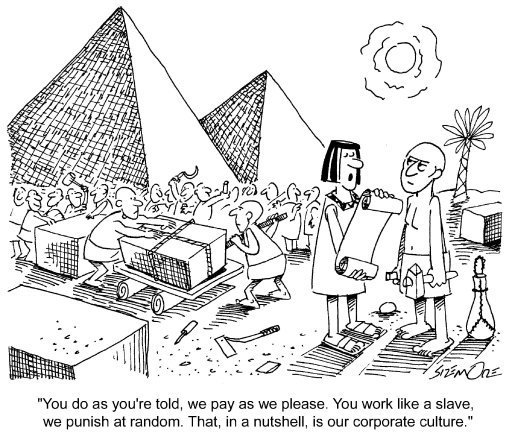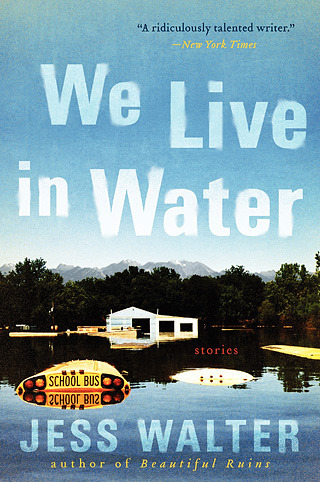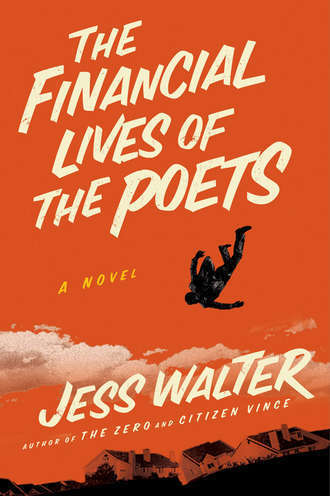Jonas Eriksson's Blog: Jonaswrites.com - official site of author and writer Jonas Eriksson, page 5
June 4, 2014
Sympathetic Pricing – A New Way Into Consumer Hearts/Wallets?
 The sympathetic shark above is courtesy of muffincomics.com
The sympathetic shark above is courtesy of muffincomics.com
I subscribe to the trendwatching.com newsletter and the latest issue talked about Sympathetic Pricing, labelled as a new wave in the overall trend to improve the conscience of businesses. Here is the report that I summarize very briefly below.
It comes as no surprise that consumers still don’t believe that business have their best interest top of mind. According to PR firm’s COHN & WOLFE’s 2013 report just 5% of consumers in the UK and US believe big businesses are very transparent and honest.
Will this ever change? Well, a lot of companies are trying through sympathetic pricing. So what the heck is sympathetic pricing?
DEFINITION OF SYMPATHETIC PRICING | Flexible and imaginative discounts that help ease lifestyle pain points, lend a helping hand in difficult times, or support a shared value.
There are a few different kinds of sympatethic pricing:
1. PAINKILLER PRICING
Discounts that target lifestyle pain points.
Trendwatching gives the example of the impressive taxi company Uber:
In April 2014 during a 48-hour London tube strike, mobile cab app Uber offered 50% off all London trips for passengers who split their fare with another passenger. Meanwhile, in October 2013 the company offered free rides to students in Boston during a 24-hour bus strike.
There are more examples of painkiller pricing in the report.
2. COMPASSIONATE PRICING
Discounts that offer a helping hand at a difficult time.
In April 2014, online platform Pressfolios announced it would make its service available for free to journalists affected by a staff lay-off by New Jersey’s largest newspaper, the Star-Ledger. Pressfolios allows users to create an online portfolio. The out-of-work journalists received a Pressfolios Pro account with unlimited storage for three months, at no cost.
3. PURPOSEFUL PRICING
Discounts in support of a shared value or belief.
As an incentive for motorists to leave their cars at home, all Parisian public transport was free for one weekend in March 2014. The decision was made by transport chiefs in response to the dangerously high levels of pollution which had engulfed the French capital for days.
I think sympathetic pricing makes a whole a lot of sense. Business need to become more human to win consumer interest and this is a great step in the right direction. Our agile online world makes it easier for business to launch sympathetic campaigns quickly and react to world events and target consumers who are in need of a “break”.
It will be interesting to see which businesses can use sympathetic pricing to create a closer bond with their customer base.
May 23, 2014
Do you experience company culture problems?
I found a great post form Forbes about called “10 Signs That a Company Has a Serious Culture Problem” by Shane Atchison of Possible. It’s very good and that’s why I quote it below in full.
Do you or have you worked in a company with a serious culture problem? Please comment below!
10 Signs That a Company Has a Serious Culture Problem
by Shane Atchison
Looking for a job? It always surprises me how few people interviewing at my company ask about our culture. But they should. Over the last several months, we’ve all seen two cultural meltdowns that got big media play, and neither company came off well. In one, a woman named Julie Horvath resigned from GitHub and took to Twitter to complain about its alpha-male culture. This eventually led to the resignation of the CEO. In the other, a PayPal manager named Rakesh Agrawal began saying nasty things about other executives on Twitter. They tweeted back that he was mentally ill and they hoped he would find the help he needs. No matter what he did, that was not the sign of a happy workplace.
Aside from the unpleasantness, bad cultures are also bad for your career. Successful people tend to work for winners, and a good culture has been shown to drive long term financial performance. Work for a happy place, and you’ll likely do better in life.
However, that brings up a question. How can you know anything about a company’s culture when you only go for a single interview? Believe it or not, there are signs. As an advertising agency, my company does interviews with dozens of potential clients every year. Over time, we’ve come up with a list of red flags for company culture. No one of them, by itself, should turn you off. But if you see, say, five of them, you know you have a problem on your hands. Here they are:
1. They make a big deal out of the Ping-Pong table. Having a Ping-Pong table is fine; bragging about one is not. Why? The corporate world has somehow equated owning one with having a fun loving-culture. If your potential employers emphasize theirs, it may be a sign they’re checking off boxes rather than giving their employees what they really want.
2. The place is a dump. Whenever I walk into an office, I look along sightlines. If I see boxes sitting in the aisles and chairs piled up in meeting rooms, I know no one cares about the place. And there is probably a good reason why.
3. Only the leaders have offices. We’re always leery of a place where everyone has a cube except for the bosses. That usually indicates a hierarchical structure in which management and employees are at odds.
4. No one talks about culture. Companies should try to sell you on their culture. If the person interviewing you only wants to talk about your qualifications, ask yourself what she’s not telling you about the work environment.
5. Leadership demonstrates bad culture. Culture always flows from the top. You may not have a chance to meet senior management, but you can probably track down a video of them. Your initial reaction may speak volumes about how much you’ll enjoy working at the company.
6. Your interviewer talks about excellence. Every organization strives to succeed. That’s a given. A company that emphasizes excellence may also hold its employees to unachievable standards. Rather than focusing on your job, you’ll be worrying about your job.
7. It just seems weird. A happy workplace should hum. Some people should be up, moving around, and talking to one another. They should not seem bored or stressed. So take a look around, and ask yourself if the average person seems happy or not.
8. The company values are posted on the wall. If you see this, don’t bother with the interview. Simply find the nearest exit and walk through it.
9. It’s five o’clock, and everyone is buried in work. If you can, schedule your interview late. Five o’clock gives you a great opportunity to see how a company manages the work-life balance. A few people working late are fine, but some should be heading home.
10. If they ask you if you have a question, ask this: “How much time do you spend with your coworkers after 5 p.m., and doing what?” Good answers include having a beer and playing softball. Bad answers include anything to do with work, unless it happens only occasionally.
A lot of people would say that work should be a place for work and that these days any job is a good one. Agreed. Obviously you should get the job you can if you’re having trouble finding one. But if you have a choice of employers, try for one with a good culture. You’ll be happier, and your career will thank you.
In fact, the only downside to a good culture is that you’ll never become famous for ranting about your boss on Twitter. Then again, that 15 minutes is probably best left to someone else.
May 21, 2014
Reading Jess Walter
I’ve landed into a period of heavy reading again and it feels like getting back to yourself after a period of confusion. I want to thank Jess Walter for bringing me back into the land of books through his novel Beautiful Ruins, but also through his other books The Financial Lives of Poets and the short-story We Live in Water (pictured above).
There is something about Jess Walter’s writing style that appeals deeply to me. Brutally honest and with a wry sense of humour, it captures something I strive hard to accomplish in my own writing. In a self-deprecating way it frames the essence of life with all its blemishes and it makes us see that maybe life is beautiful because it’s far, far from perfect.
Beautiful Ruins (click the link for more about that book) led me to The Financial Lives of the Poets, which is darker and more blatantly funny. Like his 2006 novel The Zero, it deals in part with USA post-September 11 and in part recession era America. The narrator and main character of the book is Matthew Prior, a 46-year-old ex business journalist who thanks to a ill-advised idea of starting a business poetry website has killed his career in journalism and is instead, through coincidence and a dire financial situation, planning to sell weed to his “peers” in the equally despondent middle-class.
Prior’s dire financial situation isn’t his only worry. His wife Lisa has late night conversations with an old boyfriend via Facebook (is she cheating?), she pursues an unhealthy shopping affair with eBay and to add to this, Prior’s alzheimer-plagued father is living with them and keeps repeating the same line over and over until his son’s head is going to explode. And…as most parents do, Prior is also constantly worried what kind of people his two sons will grow up to be.
You can say he has his plate rather full.
And Prior wants to solve all this by selling marijuana. (Not really all his troubles, but at least the financial ones).
The first thought I had when I understood that Prior’s plan to solve his economic distress was to sell drugs, I thought of the TV series Weeds, which, if not entirely similar plot-wise, works with the same themes: How to cope in today’s fast-paced financial jungle? Why not do something taboo-ish like selling pot? Because doing so will obviously lead to some funny and unexpected situations (story-wise).
Yes, I first I thought: I’ve seen this idea before. But the way Walter pulls it off is clever and humorous and at times also a bit sad.
But he does one of the most important things in all writing – he makes you relate to the characters in his stories and he makes you laugh.
So with this very short review, I can really recommend The Financial Lives of the Poets.
The Financial Lives of the Poets in turn lead me to purchase We Live in Water, Walter’s short story collection.
If The Financial Lives of the Poets was dark and funny, this is more sharp and poignant. The stories in the book deals with loss, abuse, addiction and although many of them are heavy in storyline, they’re always a breeze to read, the reason being Walter’s skilful handling of the American language. In some way his writing he reminds me of another author favourite, Richard Ford.
Among all the destruction and broken people, there is, and here’s the trick, love. And real love, not Valentine’s Day love, not postcard love, not romantic love, but deep and heartfelt love. Between father and son (several of the stories deal with this), but also relationship love and what We Live in Water shows is how much we all hurt because of it.
Writing that’s “real” is, to me, the best kind of writing and We Live in Water has it in spades.
I also like the contrast between this dark short story collection and the more romantic Beautiful Ruins. It shows that a talented writer doesn’t have to step inside a box and put a label on it. Write whatever you feel like, treat writing as an experiment, don’t think about sales, and publish something that’s you all over it. No matter what topic you write about, the voice will be there, the you will be there.
But I digress.
What I wanted to say with this post is that I’m thankful for books, for reading and for writing and I hope you are too. And if you are, why not check out Jess Walter, a talented writer with some very powerful work.
May 16, 2014
Twitter demonstrates customer centricity
Customer centricity is the buzzword for companies the world over, but buzzwords doesn’t always translate into sensible actions. But the above is Twitter’s way of understanding what I want and helping me sort it out. It’s a bold move to change something without asking the customer first, but, and I assume this is built on some solid data, they “know” what I want and what my obstacle for achieving it is (laziness in this case, because I could have just switched those notifications off) – so they help me!
It’s not grand, it’s not amazing, it’s not awesome, but it’s customer centric and I really appreciate that.
Good work, Twitter. Keep it up.
March 26, 2014
Beautiful Ruins
Stephen King wrote that you need to read a lot to get the right tools to write. He’s a hundred percent right. I’ve been working on my third novel for 8-9 months now and my productivity and focus is weak. I worry that I won’t finish it. Since I changed position at work, it’s been difficult to find pockets of time to really dive down into the story. Five minutes here and there won’t cut it.
It’s been the same with my reading. I’ve had trouble focusing on one book and keep skipping between a few different ones. These are the (main) two I’m reading at the moment with descriptions in italics (from Amazon):
Once a privileged and loving couple, the Armsteads have now reached a breaking point. Ben, a partner in a prestigious law firm, has become unpredictable at work and withdrawn at home—a change that weighs heavily on his wife, Helen, and their preteen daughter, Sara. Then, in one afternoon, Ben’s recklessness takes an alarming turn, and everything the Armsteads have built together unravels, swiftly and spectacularly.
Thrust back into the working world, Helen finds a job in public relations and relocates with Sara from their home in upstate New York to an apartment in Manhattan. There, Helen discovers she has a rare gift, indispensable in the world of image control: She can convince arrogant men to admit their mistakes, spinning crises into second chances. Yet redemption is more easily granted in her professional life than in her personal one.
As she is confronted with the biggest case of her career, the fallout from her marriage, and Sara’s increasingly distant behavior, Helen must face the limits of accountability and her own capacity for forgiveness.
The acclaimed, award-winning author of the national bestseller The Financial Lives of the Poets returns with his funniest, most romantic, and most purely enjoyable novel yet: the story of an almost-love affair that begins on the Italian coast in 1962 . . . and is rekindled in Hollywood fifty years later.
I haven’t finished either one of them yet (my Kindle tells me I’m around halfway through), but they’re both good in their own way. I think Beautiful Ruins is definitely a more accomplished/complicated story with lots of layers and very interesting characters. It skips constantly between time and perspective, but despite the intricate storytelling it isn’t hard to follow. It’s definitely one of those books that intimidates you as a fellow writer. There’s a thin line between intimidating and inspiring obviously, a lot of it has to do with your own confidence and mindset, which for a writer goes up and down like an elevator in a Keanu Reeves movie.
But right now it’s kind of intimidating.
There’s a sentence I read today in Beautiful Ruins that is really good and you all know I’m a sucker for a clever line:
“This is what happens when you live in dreams, he thought; you dream this and you dream that and you sleep right through your life.”
Beautiful Ruins sure has some beautiful writing in it – recommended! And I will finish it! Promise.
The same hopefully goes for Six Strings, the story about young guitarist with a amnesia that I’m working on. It’s slow progress, but I’ll do my best to get at least 500 words done a day. Won’t be easy, but who said writing is?
March 24, 2014
Christian rock rocks sometimes
If you’re not a devoted believer or (a person named Christian or Chris Rock – bad joke), you don’t exactly get excited by the phrase “christian rock”. That’s how my prejudiced brain works. But thanks my Spotify subscription I “discover” lots of new music without preconceptions. And lots of it is very, very good.
Recently, Spotify has recommended Christian artists like Josh Garrels, Kings Kaleidoscope and Judah & the Lion. And what amazing music they make. Maybe their strong belief makes the music even more heartfelt and real? I don’t know. Religion can turn into cheesiness but at its best it’s raw and true power.
Makes you think.
A selection of good songs:
Felix Culpa by Kings Kaleidescope (Spotify)
Felix Culpa by Kings Kaleidescope (Youtube)
Back’s Against the Wall by Judah and the Lion (Spotify)
Back’s Against the Wall by Judah and the Lion (Youtube)
Farther Along by Josh Garrels (Spotify)
Farther Along by Josh Garrels (Youtube)
March 5, 2014
Ryanair rebrand

Fake ad
Yesterday I booked a trip to Bergamo (vacation) with Ryanair. I’m traveling frequently through work, but there was a long time since I flew with the controversial airline. I haven’t been able to avoid them in media though with their CEO Michael O’Leary appearing in media (mostly as a “defendant”) from time to time. Here are his “daftest” quotes according to the Guardian.
In case you’ve been living under a rock, or are lucky enough never having used the airline, Ryanair are famous for cheap flights but crappy service, doubtful security measures and intricate ways to try and squeeze more money out of each customer. Earlier they didn’t seem to care a whole lot about their customers as is evident in this line from the CEO:
“I don’t give a shit if no one likes me. I’m not a cloud bunny or an aerosexual. I don’t like aeroplanes. I never wanted to be a pilot like those other platoons of goons who populate the airline industry.”
Anyway, as a part of their rebranding they have revamped their website. Their previous one was coded by the devil and besides hanging at the worst possible moment at times (transactions) you felt like Dante trying to navigate through a cybernetic inferno full of challenges involving web forms.
Now it’s better, but it still costs you at least 25 euro per flight to check in a bag (15 kg) and if you don’t do it at the moment you buy the tickets it costs 30 euro per flight which feels slightly ridiculous. But then again, the flights are cheap = the whole point and reason for their existence.
Let’s hope for a good flight!
January 15, 2014
Companies Without Managers – Holocracy or Holocrazy?
 Could you trash the standard company hierarchy and build a company without managers? That is the question put forth by Zappos, Medium and a few other companies when introducing a structure called Holocracy. Is it exciting or crazy?
Could you trash the standard company hierarchy and build a company without managers? That is the question put forth by Zappos, Medium and a few other companies when introducing a structure called Holocracy. Is it exciting or crazy?
I think it’s exciting (but slightly crazy), please comment what you think! Check out these articles:
Zappos says goodbye to bosses from Washington Post
Making sense of Zappos and holacracy
How Medium Is Building a New Company
Started as a One-Man Band…

One of my closest friends is running Bannerflow, a revolutionary web editor for creating online banner ads. The company has been doing huge strides of late, building a new product, expanding their pool of corporate customers, and now also signing an interesting chairman of the board in mobile operator 3′s CEO Nicholas Högberg. Here is the press release for this signing:
STOCKHOLM, SWEDEN (Jan 9, 2013) – Nordic Factory Solutions AB, the creator of one of the first cloud-based banner production platforms BannerFlow, announces Nicholas Högberg as its new Chairman of the Board of Directors.
“We are privileged to have one of Scandinavians best executive leader as Chairman of the Board. He joins with an exceptional track record and a strong experience within the IT sector, which positions our company for rapid growth. He brings a wealth of both industry and market knowledge of our future challenges in our efforts to further strengthen our competitiveness and strategic position to become a well-established global player,” says Daniel Fahlén, CEO at Nordic Factory Solutions AB.
Nicholas Högberg, CEO at the Swedish mobile operator 3, has previously held executive positions at Vodafone, Campuz Mobile, Kanal5, Spray and Bottnia Internet Provider.
Nordic Factory is a rapid growing Swedish startup-company with offices in Stockholm, Sweden and New York City, USA. The company’s innovative cloud-based banner production platform BannerFlow has been very successful within the online advertising industry in Europe.
”BannerFlow is a very unique and game-changing platform, which can get a new standard for online ad production, especially now when the HTML5-technology is getting more and more important. I am really looking forward to working with this exceptional team. They have shown impressive results in a very short period of time, and I look forward to sharing my experiences and contributing to the growth of this future global leader”, says Nicholas Högberg.
Nordic Factory welcomes Nicholas Högberg as the Chairman of the Board from the 1st of January 2014.
About Nordic Factory and BannerFlow:
Nordic Factory Solutions AB was founded in 2010. The product BannerFlow is one of the first cloud-based banner production platforms for creating and managing ads online. The platform allows businesses, advertisers, agencies and designers to create and manage large volumes of interactive ads, in different languages, in a very short time and reduces the banner production time by up to 95%. Headquartered in Stockholm and a sales office in New York City, USA.
For more information, please visit www.bannerflow.com
January 14, 2014
Blue Jasmine
We just saw Blue Jasmine, ‘s latest movie. It’s fantastic. Just wanted to tell you that.
However, I should make it clear I like most Allen movies, especially the later ones. He tells stories the way not enough people do, without special effects, without exaggerations and without gloom.
He tells stories using beautiful photography and scenery (To Rome with Love and Midnight in Paris are recent excellent examples) and fine acting. He tells stories that feels eerily real but still kind of nice.
And he knows how to direct actors. Just look at Cate Blanchett’s amazing performance in Blue Jasmine and you know what I mean.
So if you want to watch something inspiring of real quality – watch a Woody Allen movie. And why not Blue Jasmine?
Jonaswrites.com - official site of author and writer Jonas Eriksson
- Jonas Eriksson's profile
- 22 followers













